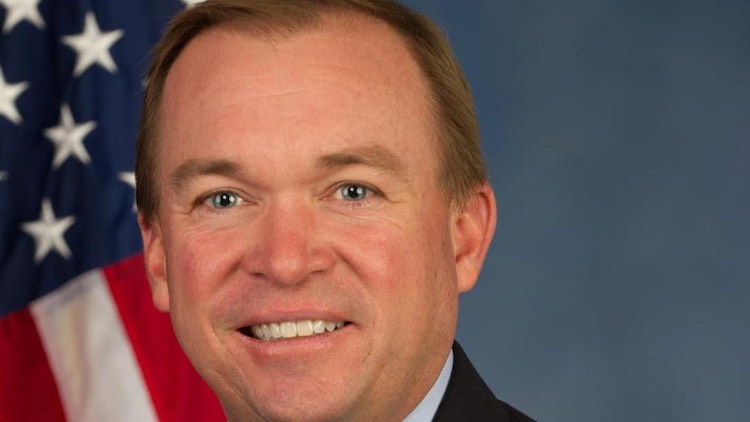OMB's Mulvaney: Swamp-Draining Includes Government Reorganization

The smarter way to stay on top of broadcasting and cable industry. Sign up below
You are now subscribed
Your newsletter sign-up was successful
Office of Management and Budget director Mick Mulvaney says that reorganizing executive branch agencies is part of President Donald Trump's pledge to drain the D.C. swamp, and the Administration is looking for input from CEOs, the Hill and the public to do that.
That came in a press conference with reporters on the President's executive order on government reorganization and reducing the federal civilian workforce and OMB's planned release of guidelines on what those agencies should prioritize.
He said that getting lobbyists out of the process was part of it but that so was restructuring the government, including being able to reward people doing good jobs and find a way to get the others to follow suit or get out.
Last month, President Donald Trump signed an executive order mandating a comprehensive reorganization of the executive branch, including “eliminating unnecessary agencies” as well as parts of agencies or agency programs.
Mulvaney said that the Administration was starting with a clean slate, though he conceded that some of the changes will require Congress to rewrite them. The President can't just wave a magic wand and make some of this happen, he said.
He said the goal was to make government dramatically more accountable, efficient and effective. Trump is also looking for a more free market business model. The administration met with CEOs Tuesday to get their ideas, said Mulvaney, and the takeaway was the government should restructure according to functions, rather than according to two centuries worth of guidelines or according to the dozen congressional appropriations committees.
For example, he said, put all the trade-related functions in one place. He pointed out that there are 43 different workforce training programs across 13 different agencies, and that was a case of "if everybody is responsible, nobody is responsible" and of hereditary structure that needs to change. "We should be able to fix that."
The smarter way to stay on top of broadcasting and cable industry. Sign up below
The fix will almost certainly include reductions in force, but Mulvaney suggested that goes with the territory of making government more efficient and effective.
He also suggested journalists should understand about staff reductions. He said this was the same thing "every one of you have been through. You are the last people who actually work in journalism."
One reporter pointed out that counties surrounding D.C. were concerned that their economy could tank—given how dependent they are on government and civilian support workers. Mulvaney said that OMB did not come up with the guidance "to take care of special interests," including those in the D.C. suburbs worried about the values of their homes. He said fixing the government is more important.
Independent regulators such as the FCC and the Federal Trade Commission fall under the executive branch, so some of their functions could be in play, though they are not subject to executive orders. The Commerce Department, which oversees government spectrum users, is under the reorg order, however.
In that executive order, the director of the Office of Management and Budget is charged with considering, in concert with the heads of the relevant agencies, whether some or all of the functions of an agency are better left to state or local governments, or the private sector; which functions are redundant; whether costs are justified by the public benefits; and how much it would cost to shut down or merge agencies, parts of agencies or programs.
B&C has reported that the Trump transition team signed off on a plan in which some FCC functions could be dealt off to the FTC or Justice. The former could happen anyway with broadband privacy and even network neutrality enforcement should the FCC reclassify internet service providers as information services.
Contributing editor John Eggerton has been an editor and/or writer on media regulation, legislation and policy for over four decades, including covering the FCC, FTC, Congress, the major media trade associations, and the federal courts. In addition to Multichannel News and Broadcasting + Cable, his work has appeared in Radio World, TV Technology, TV Fax, This Week in Consumer Electronics, Variety and the Encyclopedia Britannica.

